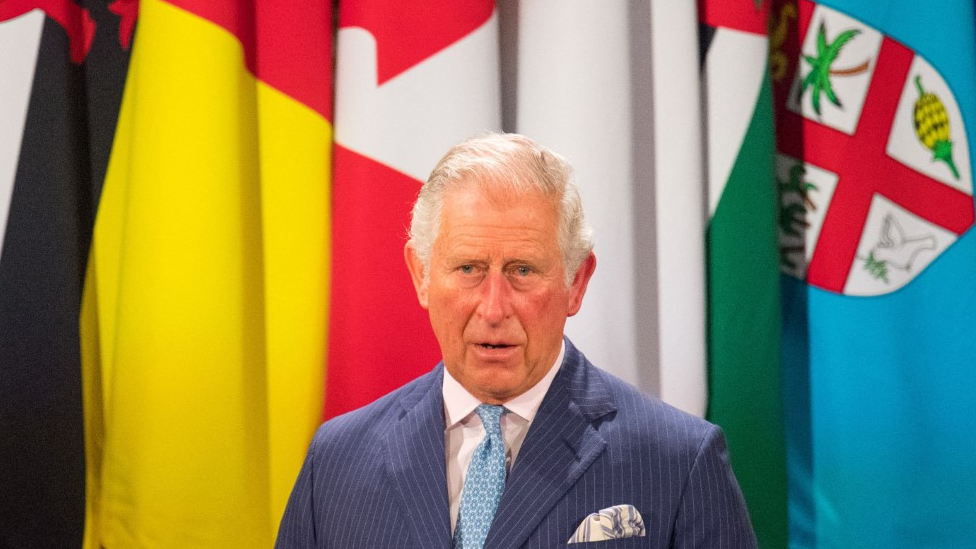King Charles III as head of state in St Vincent and the Grenadines 'absurd'
- Published
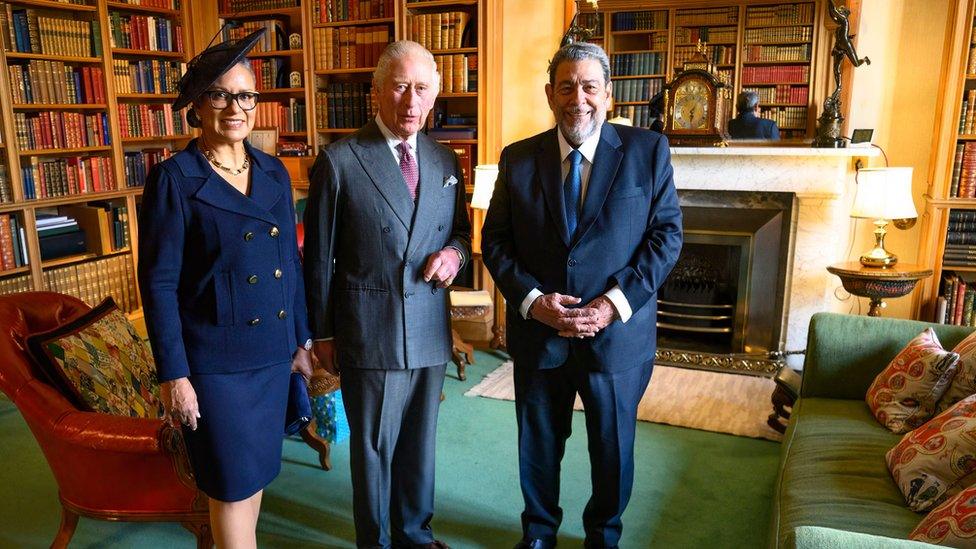
King Charles III, seen here with Ralph Gonsalves, is head of state in a number of Caribbean countries
The Prime Minister of St Vincent and the Grenadines has said having a British monarch as head of state is "an absurdity" he would like to end in his lifetime.
Ralph Gonsalves said he would welcome an apology from the British state and monarchy on past injustices relating to slavery.
He said he believes King Charles III is open to talking about reparations.
King Charles is head of state in eight Caribbean countries.
Within the past year, political leaders in the Bahamas, Belize, Grenada, Jamaica, Saint Kitts and Nevis and Antigua and Barbuda have all indicated their plans to review their positions as constitutional monarchies.
The Prime Minister of St Kitts and Nevis, Dr Terrance Drew, told the BBC his country is "not totally free" as long as King Charles III remains head of state and that a public consultation on whether the nation should become a republic would begin during his leadership.
Speaking to the BBC two days after the coronation, Dr Gonsalves said the current constitutional arrangement "offends people in a psychological way" and his country wanted a president "selected by our own constitutional processes".
In 2009, St Vincent and the Grenadines held a referendum to decide whether to transition to a republic. Forty-five per cent of voters chose to replace Queen Elizabeth II with a ceremonial president - falling far short of the two-thirds required.
Mr Gonsalves has said he would like to try again.
"I don't know whether it will happen. But I'm hoping so. If it doesn't happen, somebody else will stand on my shoulders and carry forth that work," he said.
According to a recent poll conducted in the 15 countries where the King is head of state, St Vincent and the Grenadines is among those most opposed to becoming a republic.
The survey, conducted by UK politician-turned-pollster Lord Ashcroft, suggests that the idea would be rejected by a majority of 63% to 34%.
Lord Ashcroft Polls interviewed 22,701 adults across the 15 countries between 6 February and 23 March.
'Open to conversation'
In a statement, Buckingham Palace said the decision on transitioning to a republic "is purely a matter for each country to decide".
Mr Gonsalves added he would welcome an apology from both King Charles and the British government on the legacy of slavery.
"King Charles at least, is clearly interested in having a conversation. And I welcome that. But I don't know whether King Charles is going to do an apology without the British state."
Buckingham Palace told the BBC the King takes slavery "profoundly seriously".
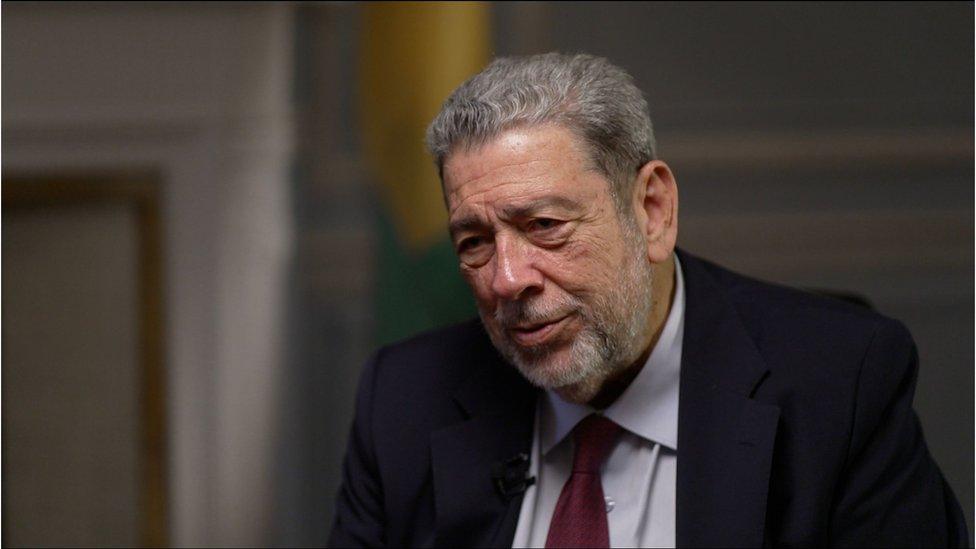
Prime Minister Ralph Gonsalves was in office the last time St Vincent and the Grenadines voted on having the British monarch as head of state in 2009
Buckingham Palace has said that it is co-operating with an independent study exploring the relationship between the British monarchy and the slave trade in the 17th and 18th centuries.
Mr Gonsalves said he had contacted David Cameron's government on the issue, but was rejected.
"Their response was that, 'Look, we're not doing apologies. Let's look forward, let us learn. Let's not look to the past'. There's only one problem with that. The present is the past," he said.
Mr Gonsalves said the current UK Prime Minister, Rishi Sunak, was also wrong for refusing to apologise for the UK's historic role in the slave trade, adding that going to the International Criminal Court to pursue the issue was also an option.
"We can continue the political work, we can do diplomatic work, but we can also go to the International Court of Justice, for example," he said.
"But I would prefer if we have the conversation, rather than to have to do that."
Speaking two days after the Coronation, Dr Gonsalves praised the King for his positions on climate change and inter-faith dialogue.
"I hold his Majesty in great personal regard," he said.
"My conversation is not one of revenge. It is just something which is reasonable and fair."
- Published8 May 2023
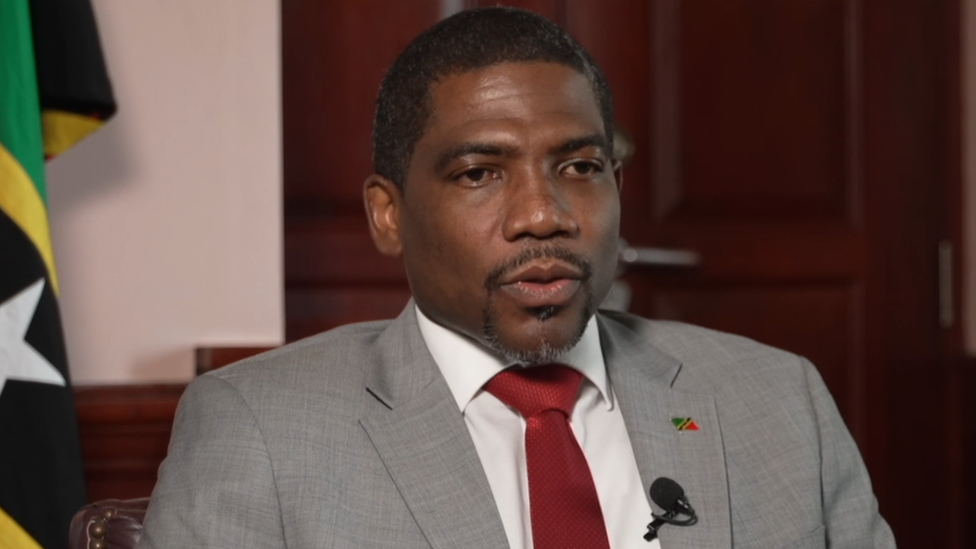
- Published4 May 2023
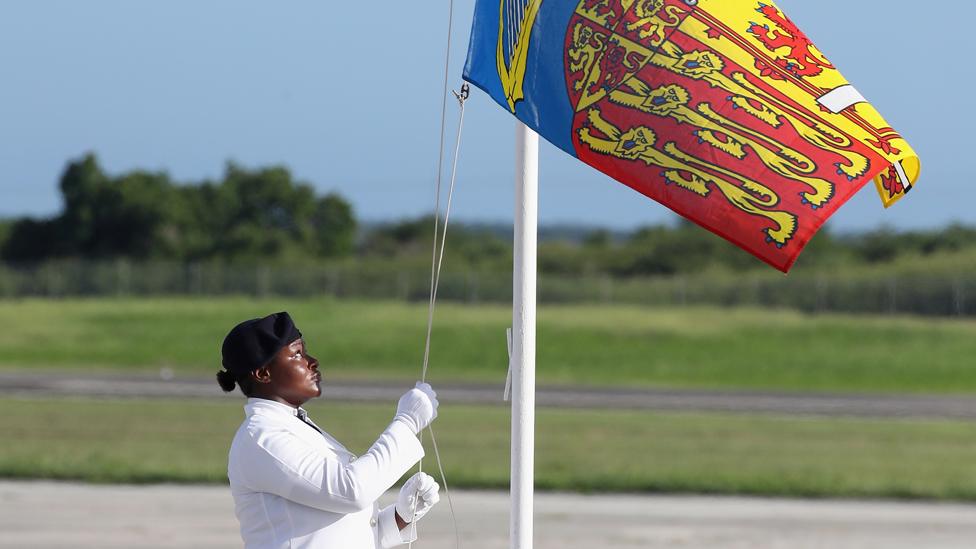
- Published25 April 2023
